50% Response rate
Unlocking the Benefits of Best Herbal Supplements Essential Technical Specifications and How to Choose the Right Ones
The global herbal supplements market has witnessed remarkable growth, expected to reach USD 150 billion by 2028, driven by increasing consumer awareness regarding health and wellness. Herbal supplements, derived from plants and used for their medicinal properties, have gained popularity due to their perceived natural and holistic benefits. As more individuals seek alternative solutions to enhance their well-being, the demand for high-quality herbal products has surged, particularly from leading manufacturers in China whose exports are spreading worldwide. It is crucial for consumers to understand essential technical specifications when selecting herbal supplements, as not all products are created equal. This blog aims to unlock the benefits of herbal supplements, providing insights on how to choose the right ones amidst a plethora of options in the market.
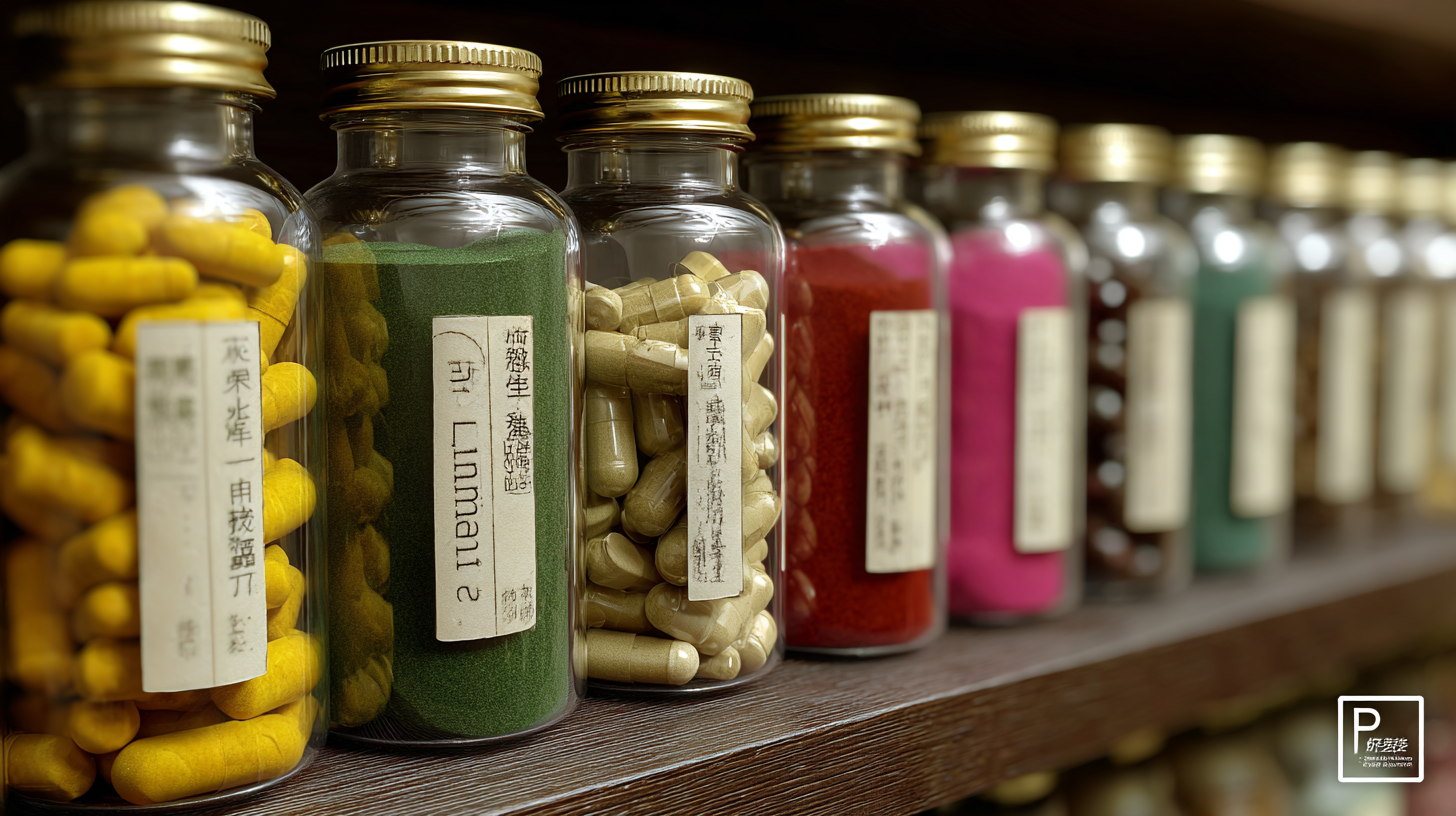
Understanding the Market Landscape of Herbal Supplements: Key Statistics and Trends
The herbal supplement market has experienced robust growth, underscored by increasing consumer awareness regarding health and wellness. According to a recent report by Grand View Research, the global herbal supplement market was valued at approximately $23 billion in 2021 and is projected to grow at a compound annual growth rate (CAGR) of 8.6% from 2022 to 2030. This surge can be attributed to a rising trend toward natural and plant-based products, with consumers gravitating towards alternatives that support overall well-being without the side effects often associated with pharmaceutical drugs.
Moreover, the market dynamics reveal significant consumer preferences influenced by demographics. A survey by the National Center for Complementary and Integrative Health indicated that nearly 18% of adults in the United States had used herbal supplements in the past year, with greater usage among women and individuals aged 30-69. The most popular herbal supplements include products like echinacea, ginseng, and turmeric, reflecting a shift towards preventive healthcare. As these trends continue to shape the market landscape, it's crucial for consumers to be informed about quality, efficacy, and the potential benefits of selecting the right herbal supplements for their health needs.
Unlocking the Benefits of Best Herbal Supplements Essential Technical Specifications and How to Choose the Right Ones
| Herbal Supplement | Key Benefits | Common Uses | Market Growth (2023) | Consumer Preference (%) |
|---|---|---|---|---|
| Echinacea | Immune support | Cold and flu prevention | 5% CAGR | 40% |
| Ginseng | Energy boost | Stress relief, fatigue | 4% CAGR | 35% |
| Turmeric | Anti-inflammatory | Joint health | 6% CAGR | 50% |
| Milk Thistle | Liver support | Detoxification | 3% CAGR | 30% |
| Ashwagandha | Stress relief | Anxiety reduction | 7% CAGR | 45% |
Essential Technical Specifications of Herbal Supplements: What to Look For
When it comes to choosing herbal supplements, understanding their essential technical specifications is crucial. First, look for supplements that provide clear information about the sourcing of their ingredients. High-quality herbal products often specify whether they use organic and sustainably sourced plants, which can directly influence their efficacy and safety.
Another important aspect to consider is the extraction method utilized in the supplement. Different methods, such as water extraction or alcohol extraction, can affect the potency of the active compounds in the herbs. Always opt for supplements that disclose their extraction processes to ensure you are getting a product that maximizes the health benefits.
Tip: Prioritize products that have undergone third-party testing. This adds an extra layer of assurance regarding purity and potency. Additionally, check for certifications, like Non-GMO or USDA Organic, as they reflect the quality and integrity of the supplement. Making informed choices based on these specifications can significantly enhance your herbal supplement experience.
Unlocking the Benefits of Best Herbal Supplements
Evaluating the Health Benefits of Herbal Supplements Backed by Scientific Research
Herbal supplements have garnered significant attention for their potential health benefits, particularly in managing non-life-threatening ailments. Recent studies indicate that these natural products are well tolerated and generally exhibit fewer severe side effects compared to conventional medications. As the popularity of herbal remedies rises, it becomes increasingly important to evaluate their efficacy backed by scientific research. For example, traditional medicinal plants have shown promise in the treatment of ailments such as SARS-CoV-2, highlighting the need for thorough assessments of their therapeutic properties.
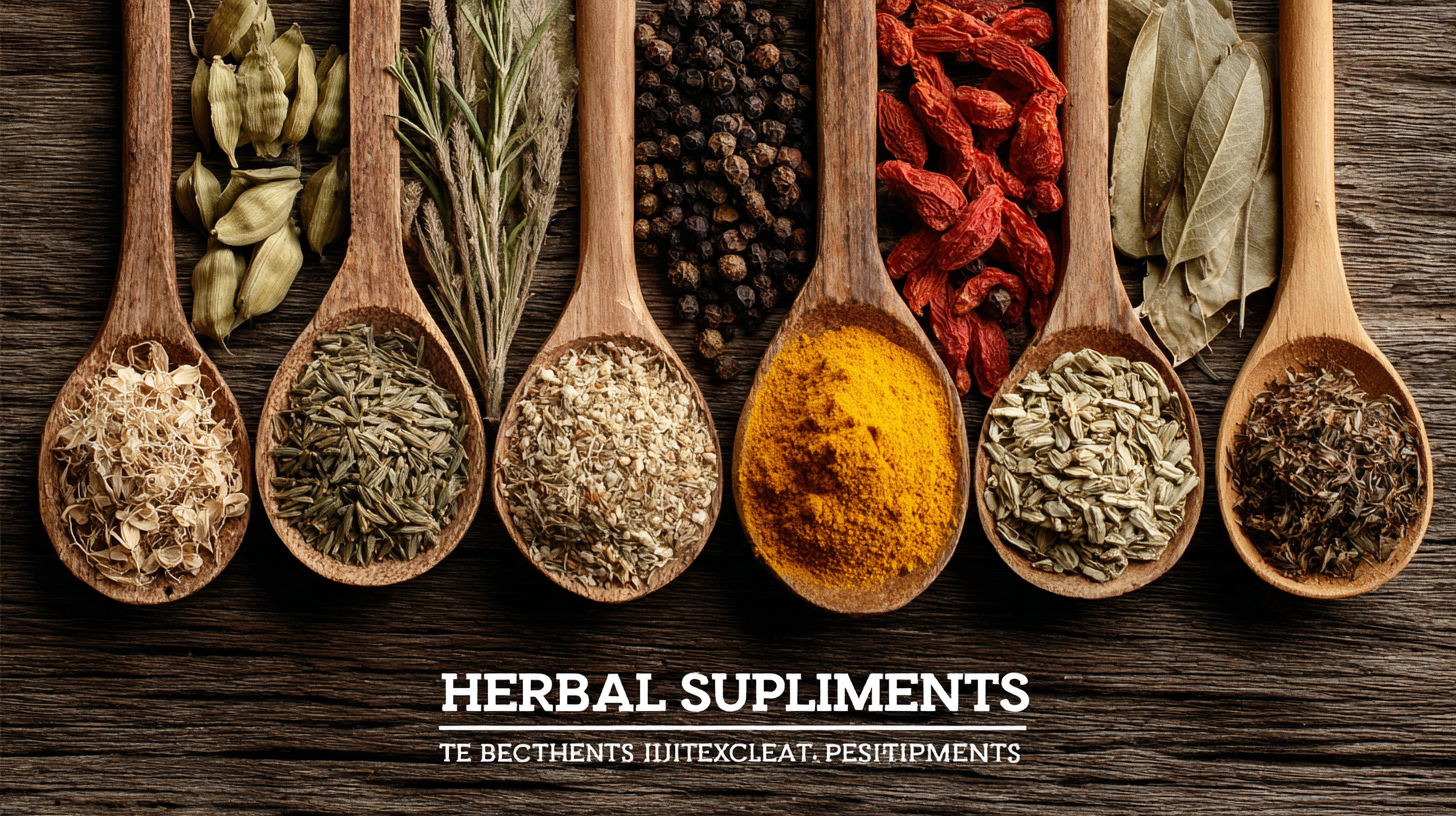 In evaluating herbal supplements, it is crucial to consider their safety and potential hepatotoxicity. Innovative formulations, such as those based on extra virgin olive oil, enhanced with natural antioxidants, have been explored for their health benefits, showcasing a proactive approach to supplement formulation. Furthermore, understanding the pharmacokinetics of multi-compound herbal medicines, particularly in traditional practices like Chinese medicine, can provide insights into effective health management strategies. As consumers increasingly turn to herbal solutions, informed choices backed by scientific evaluation should guide their selection process, ensuring both efficacy and safety.
In evaluating herbal supplements, it is crucial to consider their safety and potential hepatotoxicity. Innovative formulations, such as those based on extra virgin olive oil, enhanced with natural antioxidants, have been explored for their health benefits, showcasing a proactive approach to supplement formulation. Furthermore, understanding the pharmacokinetics of multi-compound herbal medicines, particularly in traditional practices like Chinese medicine, can provide insights into effective health management strategies. As consumers increasingly turn to herbal solutions, informed choices backed by scientific evaluation should guide their selection process, ensuring both efficacy and safety.
Choosing Quality Herbal Supplements: Certification and Sourcing Guidelines
When it comes to choosing quality herbal supplements, certification and sourcing guidelines play a crucial role in ensuring safety and efficacy. One of the first steps is to look for products that have been verified by reputable third-party organizations. Certifications from bodies such as the U.S. Pharmacopeia (USP) or NSF International indicate that the product has been tested for quality, purity, and potency. These certifications not only help consumers make informed choices but also hold manufacturers accountable for their product claims.
In addition to certification, sourcing is equally important. Understanding where and how the herbs are grown can significantly impact their quality and effectiveness. Opt for brands that provide transparent information about their sourcing practices, including whether they use organic farming methods and sustainable harvesting techniques. This ensures that the herbs are not only free from harmful pesticides but also maintain their beneficial properties. By focusing on these guidelines, consumers can better navigate the plethora of herbal supplements available and select those that align with their health needs and values.
Common Misconceptions About Herbal Supplements That You Should Know
Herbal supplements have gained immense popularity, yet many consumers still harbor misconceptions about their efficacy and safety. One common myth is that all herbal supplements are harmless simply because they are "natural." However, it's crucial to understand that natural does not always equate to safe. Many herbs can interact with prescribed medications, leading to adverse effects. Therefore, it is essential for users to consult healthcare professionals before incorporating these supplements into their routines.
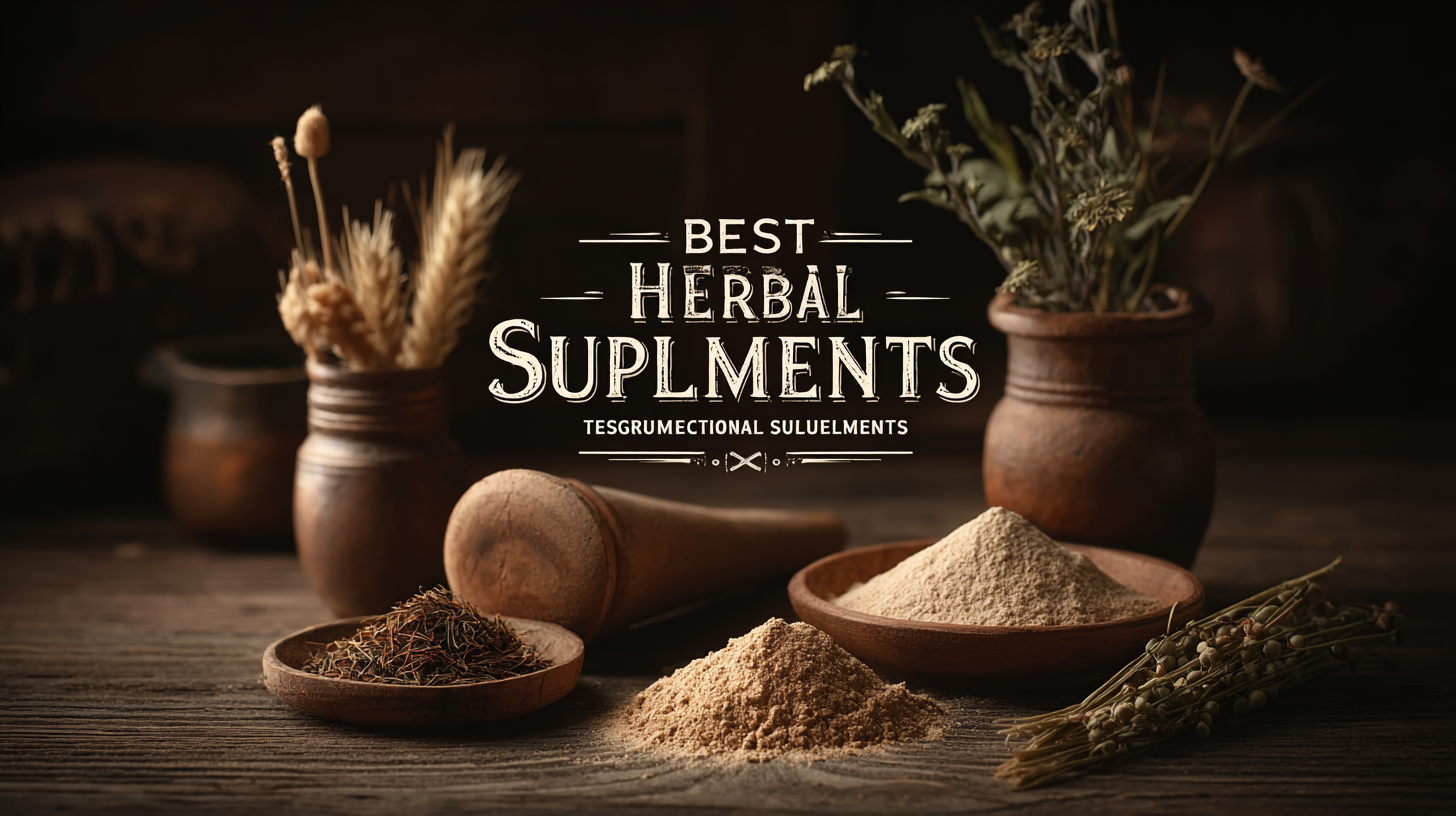
Another prevalent misconception is that herbal supplements are a one-size-fits-all solution. While herbs can offer various health benefits, their effects can vary widely based on factors such as individual health conditions, dosage, and preparation methods. Moreover, the lack of standardization in the herbal supplement industry means that the quality and potency can differ significantly from one product to another. Educating oneself on the specific herbs, their traditional uses, and any potential side effects can empower consumers to make informed choices, enhancing the overall effectiveness of their supplement routine.
FAQS
: The global herbal supplement market was valued at approximately $23 billion in 2021.
The market is projected to grow at a compound annual growth rate (CAGR) of 8.6% during that period.
Usage is greater among women and individuals aged 30-69, with nearly 18% of adults in the United States having used herbal supplements in the past year.
Popular herbal supplements include echinacea, ginseng, and turmeric.
Herbal supplements are generally well tolerated and exhibit fewer severe side effects compared to conventional medications.
Scientific research is crucial to assess the efficacy and safety of herbal supplements, ensuring they can effectively manage health ailments.
Consumers should look for products that have been verified by reputable third-party organizations and carry certifications from bodies like the U.S. Pharmacopeia (USP) or NSF International.
Understanding where and how herbs are grown affects their quality and effectiveness, so consumers should seek brands that provide transparent information about their sourcing practices.
Consumers should prioritize brands that use organic farming methods and sustainable harvesting techniques to ensure the supplements are free from harmful pesticides and retain their beneficial properties.
Related Posts
-
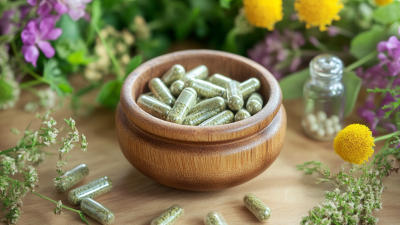
Ultimate Guide to Choosing the Best Herbal Supplements for Your Health
-
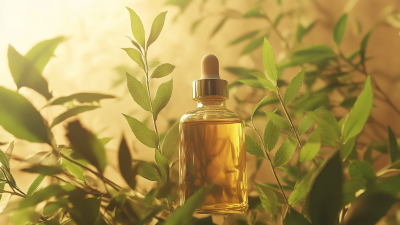
Unlocking the Power of Botanical Extracts for Sustainable Sourcing in Global Markets
-
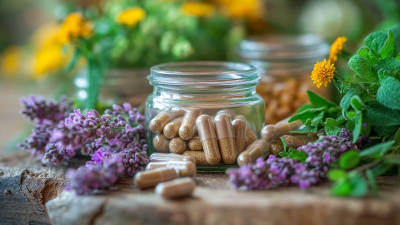
Exploring Natural Alternatives to Pharmaceutical Solutions with Best Herbal Supplements
-
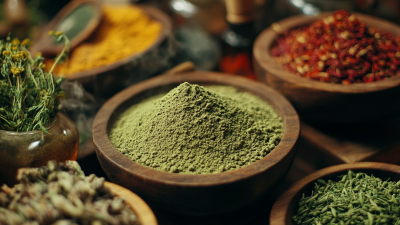
5 Ways to Source High Quality Herbal Powder for Your Business
-

How to Choose the Best Melatonin Pills for Your Sleep Needs
-
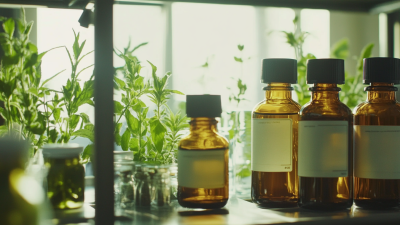
Unlocking the Potential: A Comprehensive Guide to Sourcing Herbal Extracts for Your Business